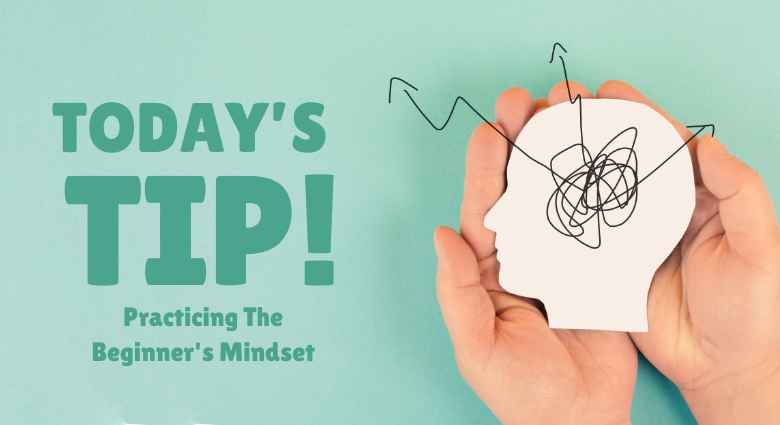
In Zen Buddhism, there is a concept called “beginner’s mind.” This refers to the attitude of approaching something with a fresh perspective as if you were seeing it for the first time. It is a state of openness and curiosity, without any preconceived notions or expectations.
Having a beginner’s mindset can be incredibly helpful in our personal and professional lives. It can help us learn to see from a different perspective, explore new beliefs/ideas, solve problems more effectively and be more creative. When we are open to new possibilities, we are more likely to see opportunities that we would have otherwise missed. We are also more likely to be willing to take risks and try new things.
In contrast, an expert mindset can be limiting. When we believe that we already know everything or hold all of the answers about a specific topic, we are less likely to be open to new ideas or different perspectives. We may also be more likely to make assumptions and jump to conclusions. This can lead to mistakes and missed opportunities as well as reinforce our confirmation biases.
The Benefits Of A Beginner’s Mindset
There are many benefits to having a beginner’s mindset. Here are a few of the most important ones:
- Increased learning and growth:When we approach something with a beginner’s mindset, we aremore likely to be open to new information and ideas. This can lead to increased learning and growth.
- Improved problem-solving:A beginner’s mindset can help ussolve problems more effectively. When we are not attached to our own ideas, we are more likely to be open to new solutions.
- Enhanced creativity:A beginner’s mindset can help us bemore creative. When we are not limited by our own expectations, we are more likely to come up with new and innovative ideas.
- Increased openness and curiosity:A beginner’s mindset can help us bemore open and curious. When we are not afraid to ask questions or explore new things, we are more likely to learn and grow.
How To Cultivate A Beginner’s Mindset
Cultivating a beginner’s mindset takes practice. Here are a few tips to help you get started:
- Ask questions:When you are faced with something new, don’t be afraid to ask questions. This can help you learn more about the situation and avoid making assumptions.
- Be open to new ideas:When you hear new ideas, don’t immediately dismiss them. Instead, try to consider them with an open mind. You may be surprised at what you learn.
- Be willing to experiment:Don’t be afraid to try new things. This is the best way to learn and grow.
- Be patient:It takes time to develop a beginner’s mindset. Don’t get discouraged if you don’t see results immediately. Just keep practicing and you will eventually get there.
Most of us think of ourselves as experts regarding who we are. This perception of oneself is a beneficial aspect of self-awareness. However, this perspective can also lead to an overdone strength. This mindset of oneself can fall into the category of expert mind and can limit our abilities to think outside of the box for different possibilities, creating something different/new for ourselves and/or problem solving.
I encourage you to begin your practice of a beginner’s mindset with a challenge you are facing. Here are a few questions you can ask yourself:
- What would you do if you did not know anything about this situation?
- What is a different way to think about this situation?
- What may be getting in the way of finding a solution?
- If nothing was holding you back, what would you do?
- In a perfect world, what outcome would you achieve?
- What advice would you give a stranger?
Remember in the expert mind, there are only a few answers. In the beginner’s mind, the possibilities are as endless as you are willing to let your mind explore. Keep in mind that the world you live in is the world you choose to create. – Forbes
Leave a Reply
You must be logged in to post a comment.